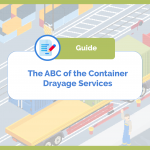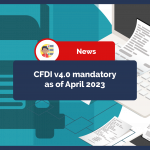Perspectives on the FMCSA’s emergency waiver changes
What are the Motor Carrier Safety REgulation Waivers?
Federal Motor Carrier Waivers Regulatory parts of 49 CFR that can be lifted are:
390: General Requirements (e.g., recordkeeping, vehicle marking)
391: Driver Qualifications (e.g., physical standards, English language proficiency) 392: Driving of CMVs (e.g., pre-trip inspection, fatigued operation)
393: Parts and Accessories (e.g., lighting, cargo securement)
395: Hours of Service (e.g., 11-hour driving limit, 14-hour on-duty limit)
396: Inspection, Repair and Maintenance (e.g., post-and annual trip inspections)
The following are not exempt:
- Drug and alcohol testing
- CDL requirements
- Insurance requirements
- Hazardous materials regulations
- State vehicle registration requirements
- Household goods movers- consumer protection regulations, and
- Other Federal commercial regulations
Motor Carrier Safety Regulation Waivers Exemptions (“waivers”) from many of the Federal Motor Carrier Safety Regulations (FMCSRs) occur “automatically“ in accordance with 49 CFR 390.23 when the President of the United States, a state Governor or a local government official issues a declaration of emergency (as defined in 49 CFR 390.5).
Presidential and State declarations are effective for up to 30 days, and local declarations are effective for up to 5 days. Only a Federal Motor Carrier Safety Administration (FMCSA) Field Administrator or Regional Field Administrator has authority to extend the waivers beyond the initial 30 days and to place additional restrictions on the waivers. The waivers apply to any commercial motor vehicle responding from anywhere in the United States to provide direct relief to the emergency.
Emergency Declarations temporarily lift most safety regulations, including hours of service, from interstate motor carrier drivers and operators providing emergency relief. Utility service vehicles are always exempt from Hours of Service limitations when they are providing for the “operating, repairing and maintaining” of public utilities. Government vehicles are always exempt, but government contractors are not (unless an emergency declaration is in effect).
Summary of the Notice of proposed rulemaking published by the FMCSA
The Federal Motor Carrier Safety Administration of the United States (FMCSA)
is proposing to narrow the scope of regulations from which relief is provided automatically for motor carriers providing direct assistance when an emergency has been declared.
In a notice of proposed rulemaking published in the Federal Register on December 8, the FMCSA explained that it believes that most emergencies justify allowing carriers and drivers providing direct assistance in responding to the emergency relief from the normal hours of service (HOS) limits in order to deliver critical supplies and services to the communities in need.
However, the FMCSA also said that the following safety regulations often have no direct bearing on the motor carrier’s ability to provide assistance to the emergency relief efforts:
- Driver qualification requirements.
- Drug and alcohol requirements.
- Vehicle inspection requirements.
- Prohibition of operating while sick or fatigued.
The Notice of Proposed rulemaking (NPRM) proposes changes to the definitions in §§ 390.5 and 390.5T. It would modify the definition for emergency to clarify that emergency regulatory relief under § 390.23 generally does not apply to economic conditions that are caused by market forces, including shortages of raw materials or supplies, labor strikes, driver shortages, inflation, or fluctuations in freight shipment or brokerage rates, unless such conditions or events cause an immediate threat to human life and result in a declaration of an emergency.
The NPRM would also remove the definition for emergency relief as that term would no longer be used in § 390.23 and would amend the definition of direct assistance to incorporate the essential components of the former emergency relief definition
This NPRM would revise § 390.23 in several ways. The automatic regulatory relief would apply for only 5 days, as opposed to 30 days, and would exempt CMV drivers only from the HOS regulations in §§ 395.3 and 395.5, as opposed to all regulations in parts 390 through 399.
The change, which would upset a rule established in 1992, would mean that during a regional emergency caused by weather or other supply chain disruptions, drivers and carriers would be exempted only from daily and weekly driving time limits and not from other requirements that are also waived in the current emergency waivers.
Those other requirements, found in parts 390 through 399 of the federal regulations, include driver qualifications, motor vehicle inspections, and prohibitions on operating while sick or fatigued.
The agency proposes to reduce the automatic applicability of 390.23 to exemptions from only the hours of service limits. It also proposes to reduce the time period of the exemption for regional emergencies.
Read the full Notice of the proposed rulemaking by the FMCSA here
BENEFITS MENTIONED BY THE FMCSA
While the existing FMCSRs offer relief from safety regulations in parts 390 through 399, FMCSA believes that most exemptions used during emergencies have been related to HOS requirement relief. The Agency has no information that suggests that existing emergency exemptions have negatively impacted road safety. This rule would provide clarity on which exemptions are necessary during an emergency and would ensure the public continues to benefit from the other important safety requirements in parts 390 through 399. In addition, in requiring that individuals request extensions or modifications to exemptions via email, the Agency would be able to more efficiently track exemption requests.
COMMENTS OPPOSING THE FMCSA’s EMERGENCY WAIVER CHANGES
Owner-Operator Independent Drivers Association:
“We do not support the proposed changes to the emergency regulatory relief stipulated in the Federal Motor Carrier Safety Regulations.” The OOIDA is unclear on exactly why FMCSA is proposing since there is not a clear conection between the exemptions and the safety.
American Trucking Associations
Disagrees with the FMCSA on shortening emergency relief in regional declarations from 30 to five days because “emergency relief may often extend well beyond five days”.
Shippers Coalition (Home Depot, Coca-Cola and Cargill)
“We do not support the proposed rule, which does not address any identified problem”.
“Governors, in declaring emergencies that last for 30 days under current rules, are closer to the facts than FMCSA and should be allowed to continue to play their current role, which better ensures strong emergency response and more fluid (or at least less constrained) supply chains.”
Sources:
Click to access Transportation-Emergency-Response-Factsheet-2-Regulatory-Relief.pdf
https://www.federalregister.gov/documents/2022/12/08/2022-26506/clarification-to-the-applicability-of-emergency-exemptions
https://www.freightwaves.com/news/why-do-carriers-and-shippers-oppose-fmcsas-emergency-waiver-changes











Wow, I learned so much from this article! The author did an excellent job of breaking down complex concepts into simple, easy-to-follow steps. I also loved the helpful tips and advice sprinkled throughout. I’ll definitely be using this information in my own life.